- Officer Injured in Hit & Run Traffic Collision At PCH CheckpointShacked Mag - 14 Jan 2025 - 0 Comments
On January 13th at about 6:45 AM Santa Monica Police Department officers responded to the intersection...
- Looter Dressed As Firefighter Arrested In Pacific PalisadesShacked Mag - 12 Jan 2025 - 0 Comments
"When I was out there in the Malibu area, I saw a gentleman that looked like a firefighter. And I...
- High-Res Zoomable Map of Pacific Palisades Shacked Mag - 11 Jan 2025 - 0 Comments
Please Click Here the High-Res Zoomable Map of Pacific Palisades that was updated on 1/11/2025 ...
- Aftermath of Wildfire on Pacific Coast HighwayShacked Mag - 11 Jan 2025 - 0 Comments
Travelling down Pacific Coast Highway from Topanga to Santa Monica looking at all the damage done...
- Surfers Defy Health Warnings About Hazardous Water ConditionsShacked Mag - 14 Feb 2025 - 0 Comments
Despite the city's health warnings about ash, chemicals, and debris from the Palisades Fire contaminating...
- Full Video - Protest Against EPA's Use of Beach as Hazardous Waste SiteShacked Mag - 10 Feb 2025 - 0 Comments
The EPA will using the Parking lot at Will Rogers State Beach in Pacific Palisades as a hazardous...
- Fire Ravaged Topanga Beach TourShacked Mag - 06 Feb 2025 - 0 Comments
Touring the damage to Topanga Beach from the Palisades Fire. For more news and updates on the...
- Will Rogers Beach To Become Another Toxic Waste SiteUnknown - 05 Feb 2025 - 0 Comments
The Eviromental Protection Agency is now going to turn Will Rogers Beach into a Toxic Waste Site. Here...
- Complete Destruction along Malibu's Coast - Touring the fire area of PCHUnknown - 05 Feb 2025 - 0 Comments
Touring the fire destruction along the coast and current condition of Pacific Coast Highway in...
- Topanga To Become Toxic Waste Sorting Site Shacked Mag - 31 Jan 2025 - 0 Comments
The City of Malibu has released a statement about the EPA using the area where the Topangas Ranch...
- Ocean Water Closure and Advisory In Fire Areas - Other Areas OpenShacked Mag - 30 Jan 2025 - 0 Comments
The Los Angeles County Department of Public Health cautions residents who are planning to visit the...
- Convicted Oregon Arsonist Arrested For Impersonating Firefighters Within Palisades FireShacked Mag - 20 Jan 2025 - 0 Comments
Convicted arsonist Dustin Nehl and his wife were arrested for impersonating firefighters with...
- Officer Injured in Hit & Run Traffic Collision At PCH CheckpointShacked Mag - 14 Jan 2025 - 0 Comments
On January 13th at about 6:45 AM Santa Monica Police Department officers responded to the intersection...
- Looter Dressed As Firefighter Arrested In Pacific PalisadesShacked Mag - 12 Jan 2025 - 0 Comments
"When I was out there in the Malibu area, I saw a gentleman that looked like a firefighter. And I...
- High-Res Zoomable Map of Pacific Palisades Shacked Mag - 11 Jan 2025 - 0 Comments
Please Click Here the High-Res Zoomable Map of Pacific Palisades that was updated on 1/11/2025 ...
- Aftermath of Wildfire on Pacific Coast HighwayShacked Mag - 11 Jan 2025 - 0 Comments
Travelling down Pacific Coast Highway from Topanga to Santa Monica looking at all the damage done...
- Surfers Defy Health Warnings About Hazardous Water ConditionsShacked Mag - 14 Feb 2025 - 0 Comments
Despite the city's health warnings about ash, chemicals, and debris from the Palisades Fire contaminating...
- Full Video - Protest Against EPA's Use of Beach as Hazardous Waste SiteShacked Mag - 10 Feb 2025 - 0 Comments
The EPA will using the Parking lot at Will Rogers State Beach in Pacific Palisades as a hazardous...
- Fire Ravaged Topanga Beach TourShacked Mag - 06 Feb 2025 - 0 Comments
Touring the damage to Topanga Beach from the Palisades Fire. For more news and updates on the...
- Will Rogers Beach To Become Another Toxic Waste SiteUnknown - 05 Feb 2025 - 0 Comments
The Eviromental Protection Agency is now going to turn Will Rogers Beach into a Toxic Waste Site. Here...
Surf Spot Galleries
Surf Photos - Venice Breakwater - Sunday 1-5-2025
Shacked Mag - 05 Jan 2025 - 0 Comments
Here's surfing photos from Saturday at the Venice Breakwater. This set of surf photos was shot by Six12 Media and brought to you by Jack's Surfboards. ...
News & Upcoming Events
Filthy Hazardous Water Floods LA Beaches After Huge Storm
Shacked Mag - 15 Feb 2025 - 0 Comments
The storm drains on Santa Monica and Pacific Palisades Beaches the day after a powerful winter storm hit. For more news and updates on the Palisades...
Posted on 15 Feb 2025 - 0 Comments
Posted on 14 Feb 2025 - 0 Comments
Posted on 14 Feb 2025 - 0 Comments
Posted on 14 Feb 2025 - 0 Comments
Featured Surfers
Event Coverage
31st Annual Venice Surf-a-Thon Results & Photos
Shacked Mag - 19 Dec 2024 - 0 Comments
Held on Saturday, December 14th, 2024, at the Venice Beach Pier. Here are the results: Boys 18U 1 Tristan Baldwin 2 Danny Okeefe 3...
Posted on 11 Dec 2024 - 0 Comments
Posted on 09 Dec 2024 - 0 Comments
Posted on 12 Nov 2024 - 0 Comments
Posted on 08 Nov 2024 - 0 Comments
Arts / Lifestyle / Gear
Surfers Defy Health Warnings About Hazardous Water Conditions
Shacked Mag - 14 Feb 2025 - 0 Comments
Despite the city's health warnings about ash, chemicals, and debris from the Palisades Fire contaminating the ocean water, several surfers have...
Posted on 12 Feb 2025 - 0 Comments
Posted on 22 Jan 2025 - 0 Comments
Posted on 27 Dec 2024 - 0 Comments
Posted on 24 Dec 2024 - 0 Comments
Latest News
Whale Stranded On Beach Rescued
Friday morning at Dockweiler Beach, lifeguards responded to a stranded dwarf pygmy whale and assisted Marine Mammal Care in assessing the...
Huge Mudslide On Topanga Canyon Blvd
Rainstorms this week caused large mudslides on Topanga Canyon Blvd. (State Route 27) in the Palisades fire burn scar. ⛰️🌊
The route...
Surfers Defy Health Warnings About Hazardous Water Conditions
Despite the city's health warnings about ash, chemicals, and debris from the Palisades Fire contaminating the ocean water, several surfers...
Mudslides in Fire Ravaged Pacific Palisades
Several mudslides throughout fire burnt Pacific Palisades. Crews work to make the roads passable for vehicles.
For more news and updates...
More Destruction - Beach Bridge Collapses
More destruction in Pacific Palisades. The latest storm washed away more a the remaining support of the already damaged Will Rogers Beach...
Mudslides Force Full Hard Closure Of PCH
Pacific Coast Highway between Chautauqua Boulevard and Carbon Beach Terrace is FULLY CLOSED and will remain until further notice due to...
West Side Wild Fire Relief Fundraiser Music Event
As a community, we’re raising funds for two friends who were impacted by the LA Wildfires: Kiyo Kitmitto and Bart Saric.
Donate to help...
Arsonist Who Set 4 Fires In Santa Monica Arrested
On Saturday, February 9, 2025, between 1:00 PM and 2:00 PM, the Santa Monica Police and Fire Departments responded to a series of arson...
Subscribe to:
Posts
(
Atom
)






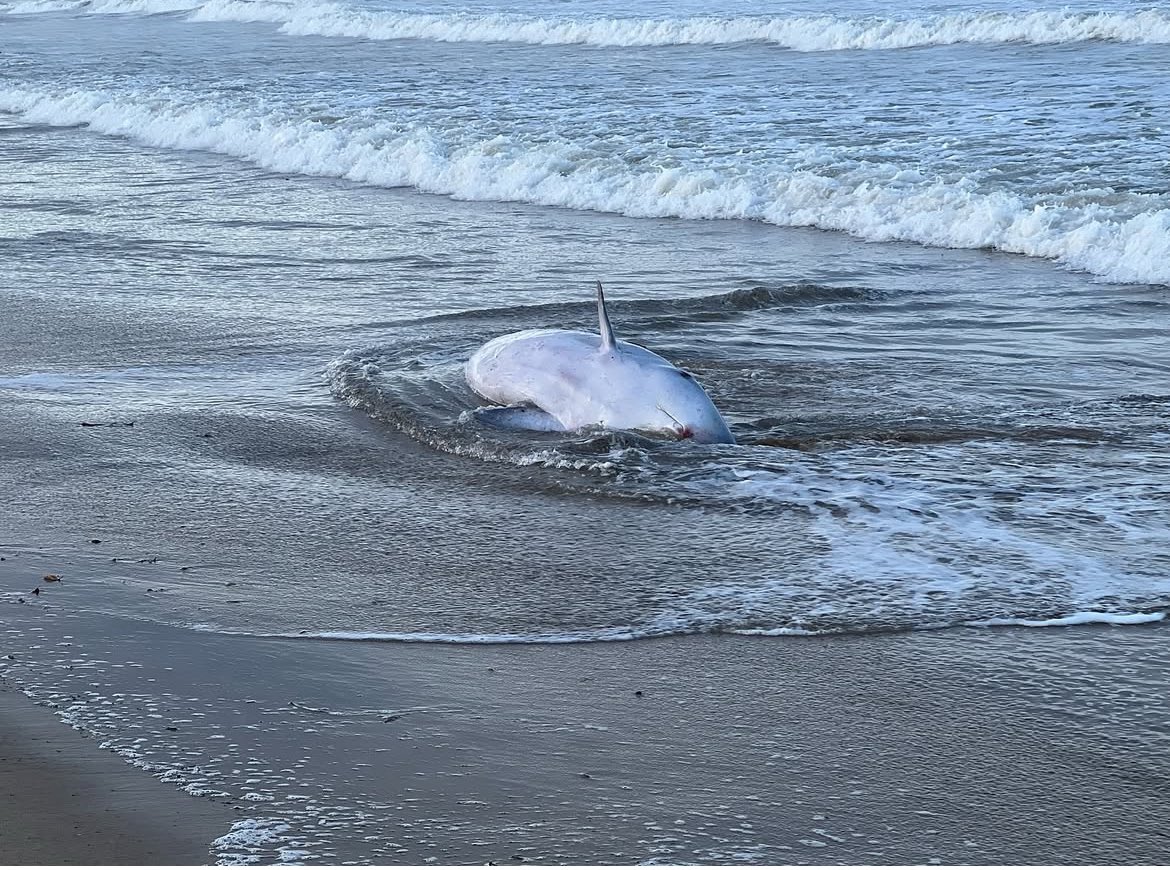

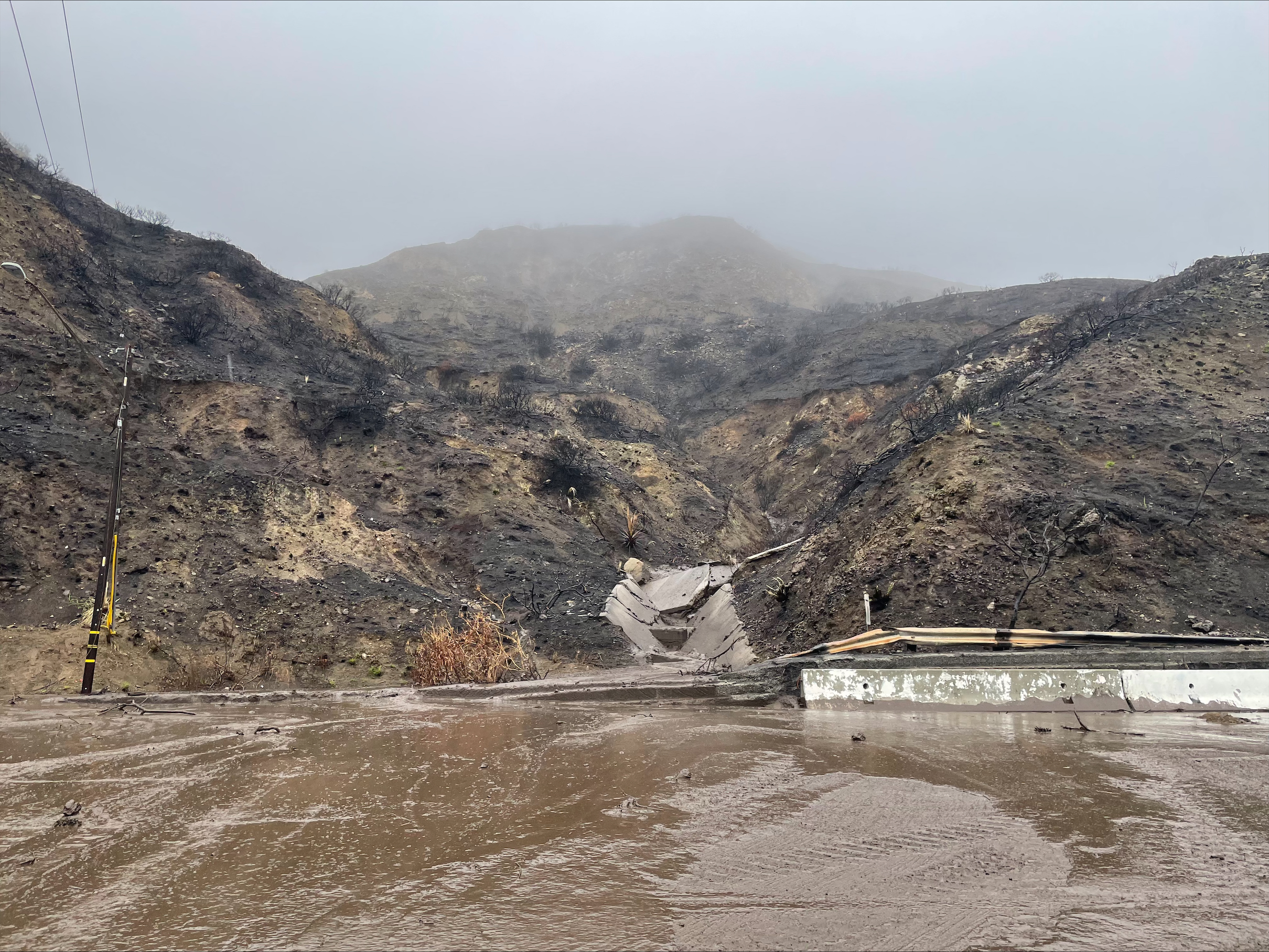
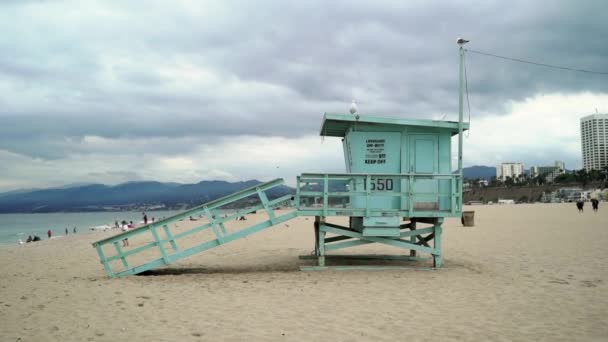
















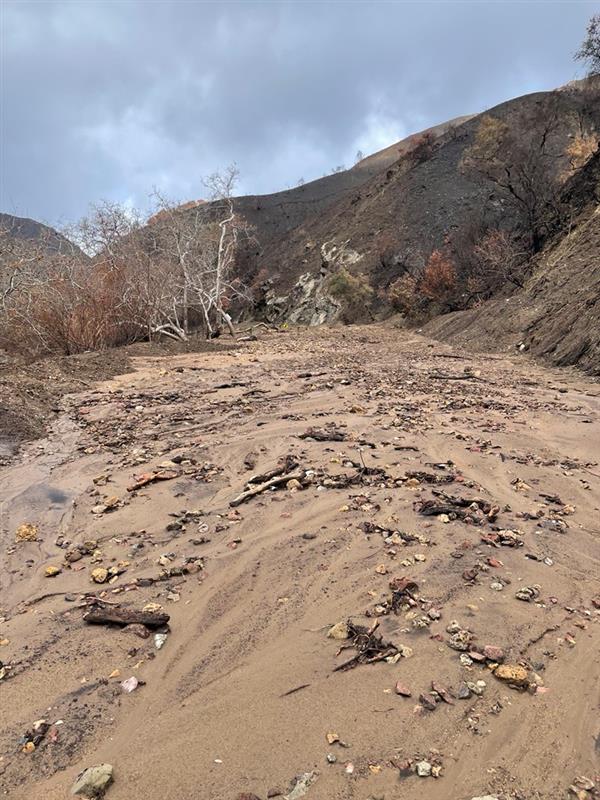


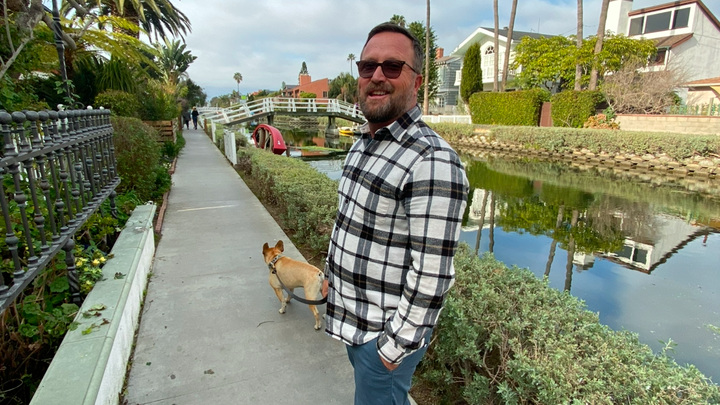






























Social Buttons